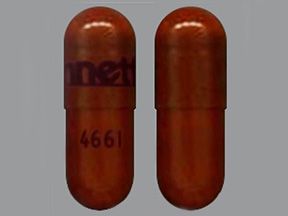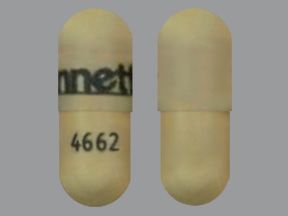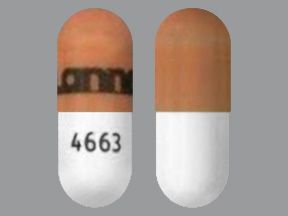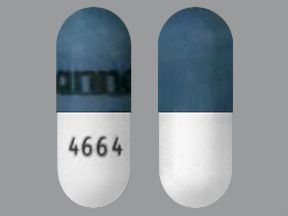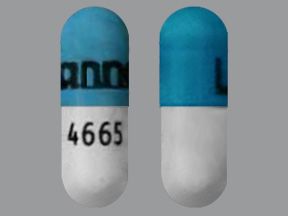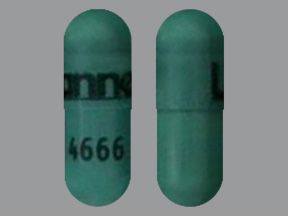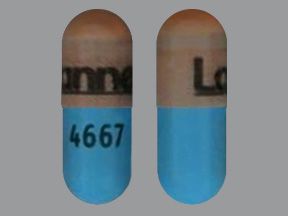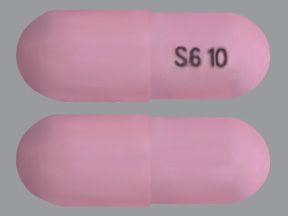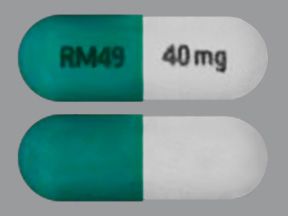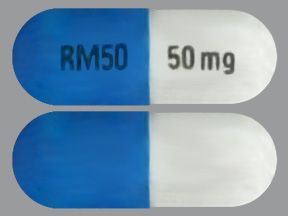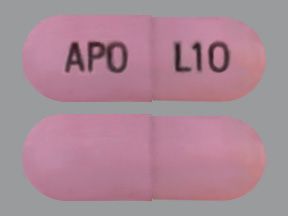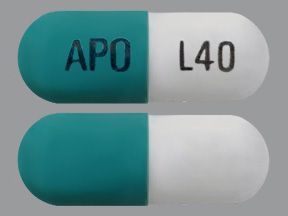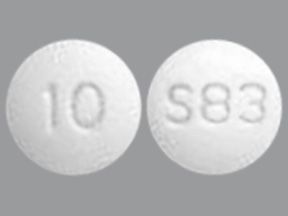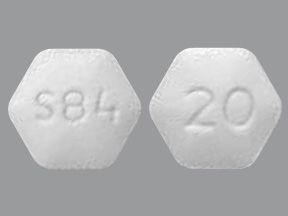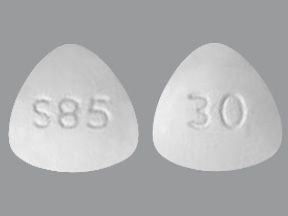Highlights for lisdexamfetamine
- Lisdexamfetamine oral capsule is available as a brand-name drug only. Brand name: Vyvanse.
- Lisdexamfetamine comes in two forms: an oral capsule and an oral chewable tablet.
- Lisdexamfetamine oral capsule is used to treat attention deficit hyperactivity disorder (ADHD) and binge eating disorder (BED).
FDA warning: Abuse and addiction
- This drug has a black box warning. This is the most serious warning from the Food and Drug Administration (FDA). A black box warning alerts doctors and patients about drug effects that may be dangerous.
- Lisdexamfetamine has a high potential for misuse and addiction. Your doctor will talk to you about the risk before prescribing this medication for you. They will monitor you for signs of misuse and addiction while you’re taking this drug.
Other warnings
- Heart problems warning: This drug may cause stroke, heart attack, or sudden death in adults with or without heart issues. It may cause sudden death in children and teens with preexisting heart problems or defects. Tell your doctor if you have any heart problems or heart defects, or a family history of these problems. This drug can also raise your blood pressure and heart rate. Tell your doctor if you have any problems with blood pressure or heart rate. Your doctor will monitor you for these conditions.
- Mental health issues warning: If you have mental health conditions, this drug may make your symptoms worse. It can also cause psychotic or manic symptoms in children and teenagers without a history of these problems. They may have symptoms such as seeing, hearing, or believing things that aren’t real, or feeling suspicious. Tell your doctor if you have mental health problems or a family history of suicide, bipolar disorder, or depression. Call your doctor right away if you have any new or worsened mental health symptoms.
- Circulation problems warning: This drug may cause circulation problems in your fingers and toes. Tell your doctor right away if you have numbness, pain, skin color change, sensitivity to temperature, or any unexplained wounds on your fingers or toes.
Lisdexamfetamine is a prescription drug. It comes as an oral capsule and an oral chewable tablet.
Lisdexamfetamine oral capsule is only available as the brand-name drug Vyvanse. It doesn’t have a generic version.
Lisdexamfetamine is a controlled substance. It can be misused and its use can lead to dependence. Selling or giving it away may harm others and is against the law.
Why it’s used
Lisdexamfetamine is used to treat attention deficit hyperactivity disorder (ADHD) and moderate to severe binge eating disorder (BED).
This medication is not for weight loss. It isn’t known if it’s safe and effective for the treatment of obesity.
How it works
Lisdexamfetamine belongs to a class of drugs called amphetamines. A class of drugs is a group of medications that work in a similar way. These drugs are often used to treat similar conditions.
Lisdexamfetamine works by increasing levels of certain brain chemicals. This helps improve concentration and focus, and reduce hyperactivity and impulsiveness.
Lisdexamfetamine oral capsule doesn’t cause drowsiness, but it can cause other side effects.
More common side effects
The more common side effects that can occur with lisdexamfetamine when used to treat ADHD include:
- anxiety
- decreased appetite
- diarrhea
- dizziness
- dry mouth
- irritability
- nausea
- trouble sleeping
- upper stomach pain
- vomiting
- weight loss
The more common side effects that can occur with lisdexamfetamine when used to treat BED include:
- dry mouth
- trouble sleeping
- decreased appetite
- increased heart rate
- constipation
- feeling jittery
- anxiety
If these effects are mild, they may go away within a few days or a couple of weeks.
If they’re more severe or don’t go away, talk to your doctor or pharmacist.
Serious side effects
Call your doctor right away if you have serious side effects.
Call 911 if your symptoms feel life-threatening or if you think you’re having a medical emergency.
Serious side effects and their symptoms can include the following:
- Allergic reactions. Symptoms can include:
- skin rash
- itching or hives
- swelling of your face, lips, or tongue
- Mental health problems. Symptoms can include:
- suicidal thoughts or other mood changes
- hallucinations or loss of contact with reality
- Heart problems. Symptoms can include:
- chest pain or chest tightness
- fast, irregular heart rate
- high blood pressure
- shortness of breath
- Vision problems. Symptoms can include:
- changes in vision
- blurred vision
- Neurological problems. Symptoms can include:
- confusion or trouble speaking or understanding
- seizures
- severe headaches
- trouble walking, dizziness, or loss of balance or coordination
- uncontrollable head, mouth, neck, arm, or leg movements
- Fingers or toes that feel numb, cool, or painful
- Prolonged or painful erection
Click here to learn more about how this drug affects the body.
Disclaimer: Our goal is to provide you with the most relevant and current information. However, because drugs affect each person differently, we cannot guarantee that this information includes all possible side effects. This information is not a substitute for medical advice. Always discuss possible side effects with a healthcare provider who knows your medical history.
Lisdexamfetamine oral capsule can interact with other medications, vitamins, or herbs you may be taking. An interaction is when a substance changes the way a drug works. This can be harmful or prevent the drug from working well.
To help avoid interactions, your doctor should manage all of your medications carefully. Be sure to tell your doctor about all medications, vitamins, or herbs you’re taking. To find out how this drug might interact with something else you’re taking, talk to your doctor or pharmacist.
Examples of drugs that can cause interactions with lisdexamfetamine are listed below.
Tricyclic antidepressants (TCAs)
Using TCAs with lisdexamfetamine can cause high levels of amphetamine in your brain. This could cause heart problems. Using TCAs with lisdexamfetamine can also increase the effects of lisdexamfetamine.
If you take lisdexamfetamine with a TCA, your doctor may adjust your dosage of lisdexamfetamine. Or they may switch you to a different medication.
Examples of TCAs include:
- amitriptyline
- desipramine
- imipramine
- protriptyline
Monoamine oxidase inhibitors (MAOIs)
Using MAOIs with lisdexamfetamine can cause extremely high blood pressure, which may lead to serious problems. You shouldn’t take this drug with MAOIs or within 14 days after stopping MAOI treatment. Examples of MAOIs include:
- isocarboxazid
- phenelzine
- tranylcypromine
- selegiline
Medications that acidify your urine
Taking these drugs with lisdexamfetamine can decrease the amount of time that lisdexamfetamine stays in your body. This makes it less effective. Your doctor may need to adjust your dosage of lisdexamfetamine if you’re taking this type of medication.
Examples of these drugs include:
- ascorbic acid
Medications that alkalinize your urine
Taking these drugs with lisdexamfetamine can increase the amount of time that lisdexamfetamine stays in your body. This increases the effects of lisdexamfetamine. Your doctor may need to adjust your dosage of lisdexamfetamine if you’re taking this type of medication.
Examples of these drugs include:
- sodium bicarbonate
- acetazolamide
Serotonergic drugs
Taking these drugs with lisdexamfetamine may increase your risk of serotonin syndrome, which can be fatal. If you take any of these drugs, your doctor will start you on a lowered dosage of lisdexamfetamine and monitor you for signs of serotonin syndrome. Symptoms can include agitation, sweating, muscle twitches, and confusion.
Examples of serotonergic drugs include:
- selective serotonin reuptake inhibitors (SSRIs) such as fluoxetine and sertraline
- serotonin-norepinephrine reuptake inhibitors (SNRIs) such as duloxetine and venlafaxine
- TCAs such as amitriptyline and clomipramine
- MAOIs such as selegiline and phenelzine
- the opioids fentanyl and tramadol
- the anxiolytic buspirone
- triptans
- lithium
- tryptophan
- St. John’s wort
Disclaimer: Our goal is to provide you with the most relevant and current information. However, because drugs interact differently in each person, we cannot guarantee that this information includes all possible interactions. This information is not a substitute for medical advice. Always speak with your healthcare provider about possible interactions with all prescription drugs, vitamins, herbs and supplements, and over-the-counter drugs that you are taking.
This drug comes with several warnings.
Allergy warning
Lisdexamfetamine can cause a severe allergic reaction. Symptoms can include:
- skin rash
- itching or hives
- swelling of your face, lips, or tongue
If you develop these symptoms, call 911 or go to the nearest emergency room.
Don’t take this drug again if you’ve ever had an allergic reaction to it. Taking it again could be fatal (cause death).
This drug contains amphetamines. If you have an allergy or sensitivity to stimulant medications, tell your doctor before taking this drug.
Warnings for people with certain health conditions
For people with heart problems: This drug may cause stroke, heart attack, or sudden death in adults with heart issues. It may cause sudden death in children and teens with pre-existing heart problems or defects. Tell your doctor if you have any heart problems or heart defects or a family history of these issues.
For people with blood pressure and heart rate problems: This drug can raise your blood pressure and heart rate. Tell your doctor if you have any blood pressure or heart rate problems. Your doctor will monitor you for these conditions.
For people with mental health conditions: If you have mental health conditions, this drug may make your symptoms worse. It can also cause psychotic or manic symptoms in children and teenagers without a history of these problems. Tell your doctor if you have mental health problems or a family history of suicide, bipolar disease, or depression. Call your doctor right away if you have any new or worsened mental health symptoms.
For people with a history of drug misuse and addiction: This drug can be misused and lead to addiction. Tell your doctor if you’ve ever misused or been addicted to alcohol or drugs.
Warnings for other groups
For pregnant women: This drug may be harmful to a fetus. It should be used during pregnancy only if the potential benefit justifies the potential risk. Taking this drug during pregnancy may increase your risk of having a baby that is premature or that has a low birth weight. Tell your doctor if you’re pregnant or plan to become pregnant.
For women who are breastfeeding: This drug may pass through breast milk and cause serious effects in a breastfeeding child. Breastfeeding is not recommended during treatment with this drug.
For seniors: Seniors may process this drug more slowly. Your doctor may start you on a lower dosage to prevent too much of this drug from building up in your body. This effect could be dangerous.
For children: For treating ADHD, it hasn’t been established that this drug is safe and effective for use in children younger than 6 years.
For treating BED, it hasn’t been established that this drug is safe and effective for use in children younger than 18 years old.
Your child’s growth will be monitored during treatment with this drug. Children who don’t grow or gain weight as expected may need to stop treatment.
All possible dosages and forms may not be included here. Your dose, form, and how often you take it will depend on:
- your age
- the condition being treated
- how severe your condition is
- other medical conditions you have
- how you react to the first dose
Drug form and strengths
Brand: Vyvanse
- Form: oral capsule
- Strengths: 10 mg, 20 mg, 30 mg, 40 mg, 50 mg, 60 mg, 70 mg
Dosage for attention deficit hyperactivity disorder (ADHD)
Adult dosage (ages 18–64 years)
- Typical starting dosage: 30 mg taken once per day.
- Typical dosage: 30–70 mg taken once per day.
- Maximum dosage: 70 mg per day.
- Dosage adjustments: Your doctor may adjust your dosage by 10–20 mg each week until you’re at a dosage that relieves your symptoms.
Child dosage (ages 6–17 years)
- Typical starting dosage: 30 mg taken once per day.
- Typical dosage: 30–70 mg taken once per day.
- Maximum dosage: 70 mg per day.
- Dosage adjustments: Your doctor may adjust your child’s dosage by 10–20 mg each week until they’re at a dosage that relieves their symptoms.
Child dosage (ages 0–5 years)
This drug should not be used in children younger than 6 years.
Senior dosage (65 years and older)
Your body may process this drug more slowly. Your doctor may start you on a lower dosage to prevent too much of this drug from building up in your body. Too much of the drug can be dangerous.
Dosage for moderate to severe binge eating disorder (BED)
Adult dosage (ages 18–64 years)
- Typical starting dosage: 30 mg taken once per day.
- Typical dosage: 50–70 mg taken once per day.
- Maximum dosage: 70 mg per day.
- Dosage adjustments: Your doctor may adjust your dosage by 20 mg each week to a target dose of 50–70 mg taken once per day.
Child dosage (ages 0–17 years)
This drug should not be used in children younger than 18 years.
Senior dosage (65 years and older)
Your body may process this drug more slowly. Your doctor may start you on a lower dosage to prevent too much of this drug from building up in your body. Too much of the drug can be dangerous.
Special dosage considerations
If you have kidney disease: Your doctor may adjust your dosage according to your kidney function:
- Severe kidney disease: The maximum dosage is 50 mg per day.
- End-stage kidney disease requiring dialysis: The maximum dosage is 30 mg per day.
Disclaimer: Our goal is to provide you with the most relevant and current information. However, because drugs affect each person differently, we cannot guarantee that this list includes all possible dosages. This information is not a substitute for medical advice. Always speak with your doctor or pharmacist about dosages that are right for you.
Lisdexamfetamine oral capsule is used for long-term treatment. It comes with serious risks if you don’t take it as prescribed.
If you stop taking the drug or don’t take it at all: If you stop taking this drug suddenly, you may experience withdrawal symptoms. This is more likely if you’ve been taking a high dosage for a long time. To prevent withdrawal, your doctor will slowly lower your dosage when you’re ready to stop treatment.
If you don’t take this drug at all: Your symptoms won’t be managed.
If you miss doses or don’t take the drug on schedule: Your medication may not work as well or may stop working completely. For this drug to work well, a certain amount needs to be in your body at all times.
If you take too much: You could have dangerous levels of the drug in your body. Symptoms of an overdose of this drug can include:
- restlessness
- tremor
- confusion
If you think you’ve taken too much of this drug, call your doctor or seek guidance from the American Association of Poison Control Centers at 800-222-1222 or through their online tool.
But if your symptoms are severe, call 911 or go to the nearest emergency room right away.
What to do if you miss a dose: If you miss a dose, take it as soon as you can. However, if it’s just a few hours until your next scheduled dose, wait and take the single dose.
Never try to catch up by taking two doses at once. This could cause dangerous side effects.
How to tell if the drug is working: For ADHD, you should have increased ability to pay attention and decreased impulsiveness and hyperactivity. For BED, you should have fewer binge eating days.
Keep these considerations in mind if your doctor prescribes lisdexamfetamine for you.
General
- You can take this drug with or without food.
- Take this drug once a day in the morning.
- Don’t cut or crush the oral capsule. Swallow the capsule whole.
- You can open the capsule and pour the contents into yogurt, water, or orange juice. Be sure to empty all of the powder from the capsule so that you get the full dose. Eat or drink all of the yogurt, water, or orange juice right away after the drug has been mixed in. Don’t save it after it’s been mixed with the drug.
Storage
- Store this drug in temperatures ranging from 68°F to 77°F (20°C to 25°C).
- Keep the medication away from light.
- Don’t store this drug in moist or damp areas, such as bathrooms.
- Store the drug in a safe place, such as in a locked cabinet.
- Don’t throw away unused capsules in your household trash. Ask your doctor or pharmacist about a drug take-back program in your community.
Refills
A prescription for this medication is not refillable. You or your pharmacy will have to contact your doctor for a new prescription if you need this medication refilled.
Travel
When traveling with your medication:
- Always carry your medication with you. When flying, never put it into a checked bag. Keep it in your carry-on bag.
- Don’t worry about airport X-ray machines. They can’t harm your medication.
- You may need to show airport staff the pharmacy label for your medication. Always carry the original prescription-labeled container with you.
- Don’t put this medication in your car’s glove compartment or leave it in the car. Be sure to avoid doing this when the weather is very hot or very cold.
Clinical monitoring
To watch for possible side effects, your doctor may check the following health issues regularly:
- blood pressure
- heart rate
- weight
- mental health status
- height (in children)
To look for signs of misuse, your doctor may check the following health issues regularly:
- heart rate
- breathing rate
- blood pressure
- weight
- physical appearance
- mental health status
Your doctor may also check your kidney function to make sure this drug is safe for you.
Availability
Not every pharmacy stocks this drug. When filling your prescription, be sure to call ahead to make sure your pharmacy carries it.
Prior authorization
Many insurance companies require a prior authorization for this drug. This means your doctor will need to get approval from your insurance company before your insurance company will pay for the prescription.
There are other drugs available to treat your condition. Some may be better suited for you than others. Talk to your doctor about other treatment options that may work for you.
Disclaimer: Healthline has made every effort to make certain that all information is factually correct, comprehensive, and up-to-date. However, this article should not be used as a substitute for the knowledge and expertise of a licensed healthcare professional. You should always consult your doctor or other healthcare professional before taking any medication. The drug information contained herein is subject to change and is not intended to cover all possible uses, directions, precautions, warnings, drug interactions, allergic reactions, or adverse effects. The absence of warnings or other information for a given drug does not indicate that the drug or drug combination is safe, effective, or appropriate for all patients or all specific uses.

